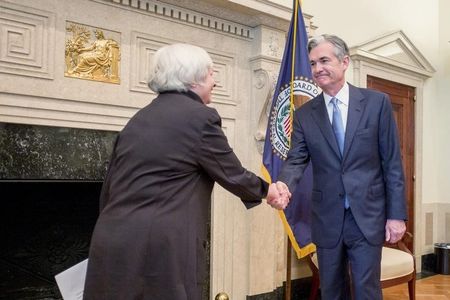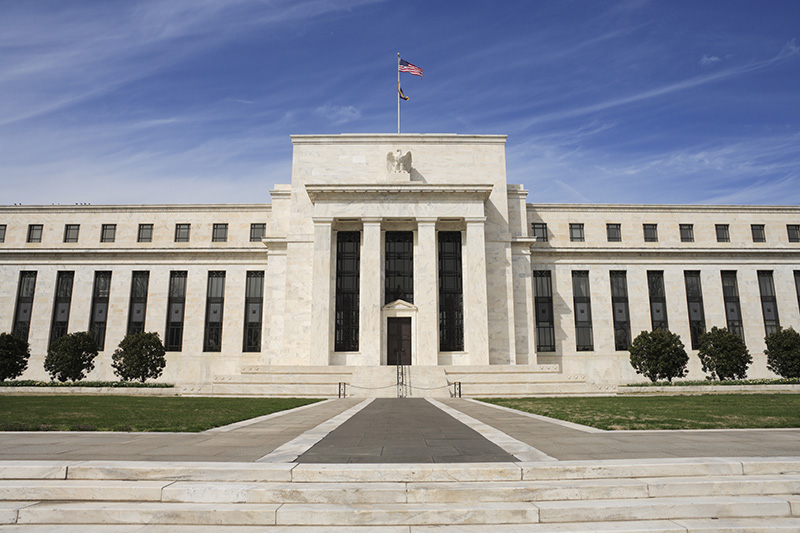By Howard Schneider WASHINGTON (Reuters) - The U.S. Federal Reserve will accelerate its search for a substitute to the Libor benchmark interest rate to stave off what would be "a horrible mess" if the current system collapses with no alternative, Fed Governor Jerome Powell said on Thursday.
The unsecured interbank lending market on which Libor - the London interbank offered rate - is based "has been in a secular decline," making it difficult for banks to credibly set the benchmark lending rate that has been wired into an estimated $150 trillion in dollar-based contracts worldwide, Powell said in remarks prepared for delivery at a New York University financial conference.
"Is it wise to rely on a critical benchmark that is built on a market in decline? Clearly not," said Powell, the Fed's representative on an international panel charged with revising the system of reference rates used in financial contracts. If the daily estimate of Libor "were to become untenable, or if we were to simply 'end Libor,' ... untangling the $150 trillion in outstanding U.S. dollar Libor contracts would entail a protracted, expensive and uncertain process."
Along with the large number of dollar-based contracts, Libor is used as a reference rate for another $150 trillion in contracts denominated in other currencies and is also common in financial derivatives. It is a critical tool in the global financial system, used to set the terms of consumer loans, home mortgages, corporate bonds and other widely used forms of credit.
But confidence was shaken when it was disclosed that the banks whose daily rate estimates are used to set Libor had been manipulating the process for years. More than $6 billion in fines were levied as a result of the scandal.
The process for setting the rate has since been revised. But Powell said it is still critical to find an alternative that is based on transactions in credit markets that are large and robust enough to reflect actual lending conditions - such as the U.S. Treasury market.
He said Libor was not designed to play the widespread role it has taken on and was "perhaps too important" to global finance.
He said the U.S. central bank would meet with the largest financial firms and others over the course of the rest of the year to develop an alternative reference rate. "We are strongly committed that at least one such rate be developed and actively used as soon as possible," he said.

Powell said Libor itself should be strengthened so that it can continue to be used, perhaps by basing it on actual transactions among a larger group of institutions, instead of the current method of basing it on banks' estimates of what they would be charged for borrowing from other banks.
(Reporting by Howard Schneider; Editing by Leslie Adler)
